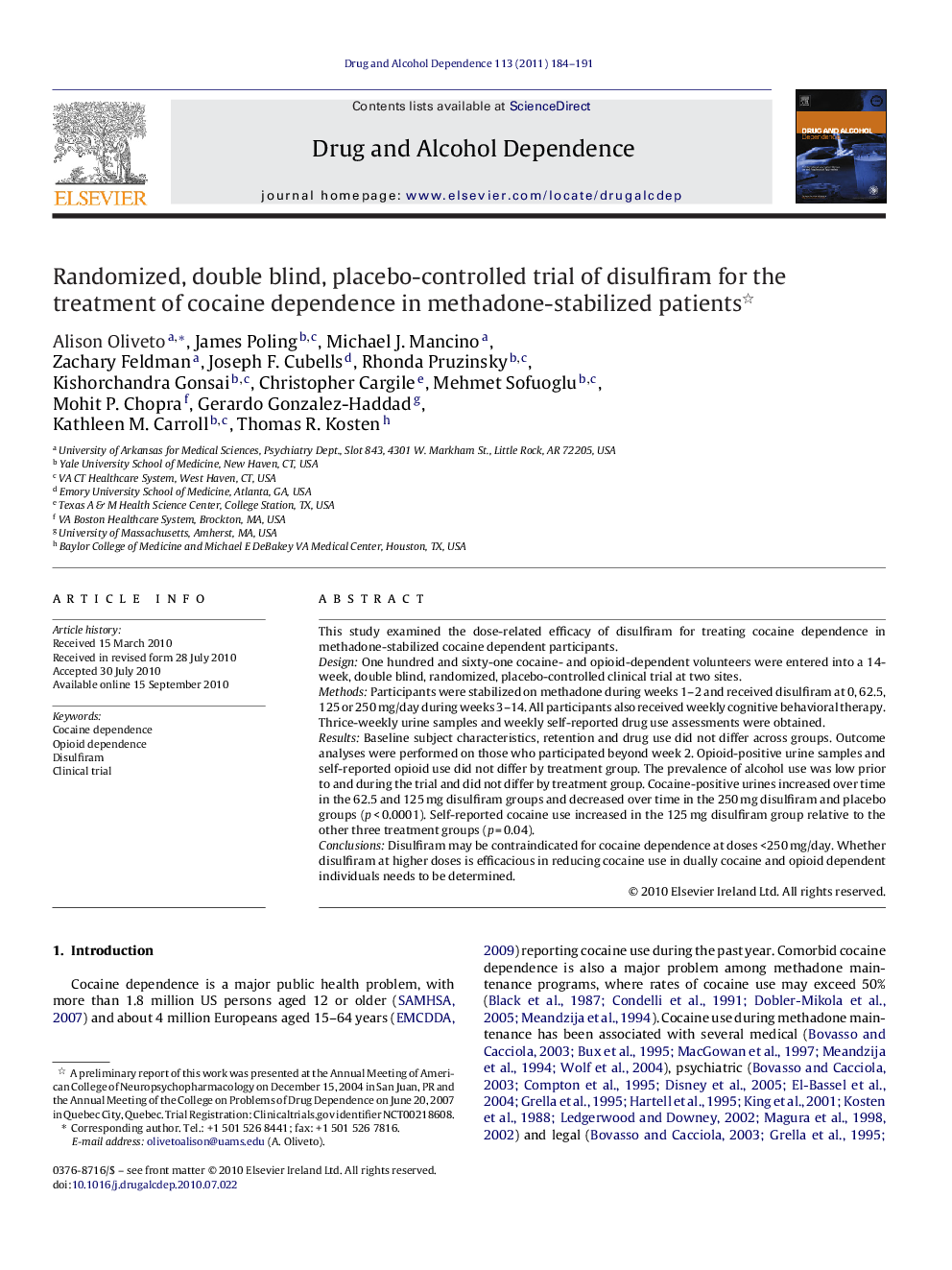| Article ID | Journal | Published Year | Pages | File Type |
|---|---|---|---|---|
| 1070293 | Drug and Alcohol Dependence | 2011 | 8 Pages |
This study examined the dose-related efficacy of disulfiram for treating cocaine dependence in methadone-stabilized cocaine dependent participants.DesignOne hundred and sixty-one cocaine- and opioid-dependent volunteers were entered into a 14-week, double blind, randomized, placebo-controlled clinical trial at two sites.MethodsParticipants were stabilized on methadone during weeks 1–2 and received disulfiram at 0, 62.5, 125 or 250 mg/day during weeks 3–14. All participants also received weekly cognitive behavioral therapy. Thrice-weekly urine samples and weekly self-reported drug use assessments were obtained.ResultsBaseline subject characteristics, retention and drug use did not differ across groups. Outcome analyses were performed on those who participated beyond week 2. Opioid-positive urine samples and self-reported opioid use did not differ by treatment group. The prevalence of alcohol use was low prior to and during the trial and did not differ by treatment group. Cocaine-positive urines increased over time in the 62.5 and 125 mg disulfiram groups and decreased over time in the 250 mg disulfiram and placebo groups (p < 0.0001). Self-reported cocaine use increased in the 125 mg disulfiram group relative to the other three treatment groups (p = 0.04).ConclusionsDisulfiram may be contraindicated for cocaine dependence at doses <250 mg/day. Whether disulfiram at higher doses is efficacious in reducing cocaine use in dually cocaine and opioid dependent individuals needs to be determined.
